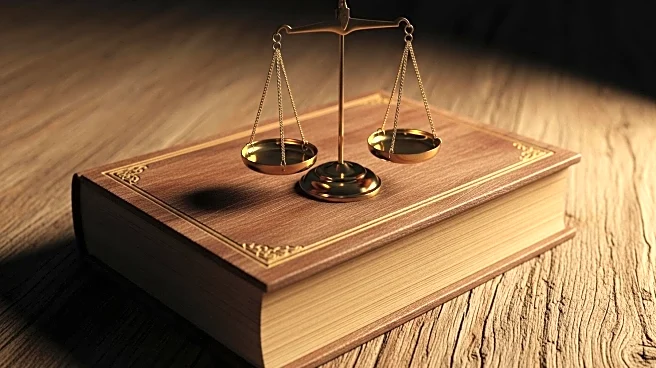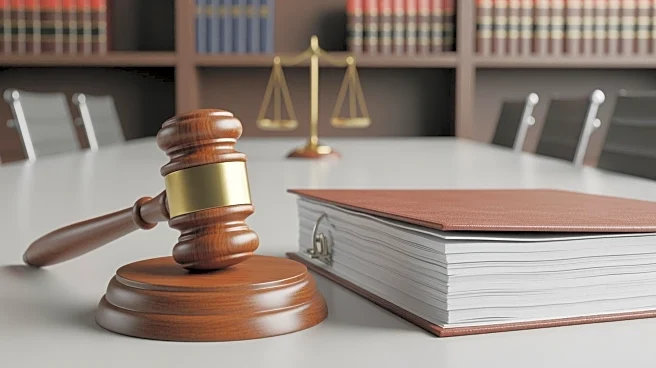What's Happening?
Former FBI Director James Comey appeared in court for an arraignment, pleading not guilty to charges of lying to Congress and obstructing a congressional investigation. The charges stem from his testimony before a Senate panel in September 2020. The arraignment took place in Alexandria, Virginia, where U.S. District Judge Michael Nachmanoff presided over the proceedings. Comey was released on his own recognizance, and a trial date has been set for early January. The case involves allegations that Comey falsely claimed he never authorized an FBI staffer to serve as an anonymous source in news reports about the bureau's 2016 investigations into Hillary Clinton. The prosecution, led by interim U.S. Attorney Lindsey Halligan, may involve classified information, adding complexity to the case.
Why It's Important?
The prosecution of James Comey marks a significant escalation in President Trump's efforts to target political adversaries. The case highlights ongoing tensions between the Trump administration and former officials involved in investigations related to the 2016 election. The outcome could have implications for the Justice Department's handling of politically sensitive cases and the use of classified information in legal proceedings. The trial's location in a district that generally disfavors President Trump may also influence public perception and the jury's composition.
What's Next?
Comey's legal team plans to file motions to dismiss the charges, citing vindictive prosecution and questioning the legality of Halligan's appointment. The trial is expected to last two to three days, but the defense aims to have the case dismissed before it reaches that stage. The involvement of classified information could lead to further legal challenges and delays. The case will be closely watched for its potential impact on future prosecutions of political figures and the Justice Department's approach to similar cases.










